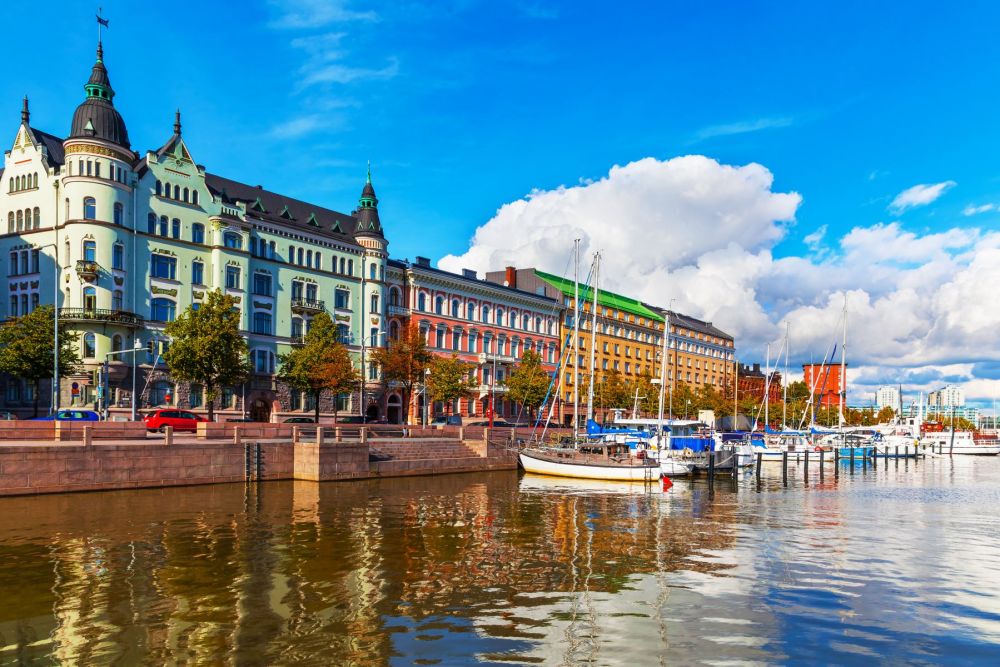Finland is another developed European country offering long-term visas to digital nomads. Nomads can obtain a residence permit through the Resident visa program for individual entrepreneurs. This registration option is not a classic “digital nomad visa”. It is a flexible accounting system for the self-employment of freelancers and remote workers.
The specifics of a freelance visa
Finland does not issue the usual Digital Nomad visas. The authorities use the existing scheme of business visas, which is adapted for freelancers.
The key feature of the Finnish digital nomad program is the mandatory registration of the Y-tunnus, i.e. the company identification number. This status turns the visa holder into a full-fledged participant in the Finnish economic system. Business ID registration takes place through the OmaVero and takes from 1 to 3 business days. The procedure is free of charge. This allows you to reduce costs for aspiring entrepreneurs.
The minimum income requirements vary depending on the chosen relocation path. The program for IT specialists sets the bar at 5,300€ per month if you have higher education or 3-5 years of experience in the IT field. An alternative route to self-employment involves a more affordable 3,000€ per month. These figures reflect the real cost of living in Finland. Large cities have a high level of expenses, which makes these amounts necessary for a comfortable stay.

- We will answer all your questions
- We will help you choose the best option
- We will guide you through every step or do everything for you
What taxes do freelancers pay
The main tax burden of a freelancer consists of several components. The national income tax is applied on a progressive scale: from a zero rate on income up to €19,900 to a maximum of 22.72% on amounts over €85,800 per year. In addition to the state tax, a municipal fee is charged. The amount varies from 16.5% to 23.5% (depending on the municipality of residence).
Starting from 2025 (with an annual turnover of less than 20,000€), companies are exempt from VAT. Previously, the exemption came with an amount of less than 15,000€. The standard VAT rate is 24%. However, there is now a 14% discount rate for hotel services, public transport and some other categories of goods and services.
Social contributions
Self-employed entrepreneurs are fully responsible for YEL pension insurance. In 2025, the contribution rate is 24.10% of the confirmed income for persons under 53 and over 62 years old. For entrepreneurs aged 53-62, there is an increased rate of 25.6%.
The minimum income for compulsory YEL insurance is set at €9,208 per year. Insurance must be issued no later than 6 months after the start of business activity. Aspiring entrepreneurs receive a benefit in the form of a 22 percent discount on YEL insurance premiums for the first 48 months of employment.
How much does a visa cost
Basic expenses start with the official fees of the Finnish Immigration Service. The amount of the state fee depends on the way the documents are submitted and the type of permit.A resident visa for an individual entrepreneur costs 550€ when applying electronically. The paper version of the same document costs 150 € more than 700€. The startup visa demonstrates a more affordable pricing policy. An electronic application requires 450€ to be paid, while a traditional application increases the cost to 580€.
Required documents and requirements
- Completed visa application form;
- A valid foreign passport, valid for at least 3 months after the planned completion of the trip;
- A color copy of the passport page with personal data;
- Passport photos. The pictures must have been taken no more than 6 months ago.
- A business plan. The main document demonstrating the commercial viability of the project and its potential in the Finnish economy;
- Financial forecast for 2 years. Required only when submitting an initial application or in case of changes in business activities;
- Contracts with clients;
- Y-tunnus (company identification number);
- Information from the bank for the last 3 months. Original bank statements signed and stamped, confirming the availability of own funds;
- Confirmation of the established monthly income;
- Legalized diplomas and certificates of education;
- Certificates of work experience. Confirmation of professional qualifications and competence in the company’s field of activity;
- Letters of recommendation from previous employers;
- Proof of residence in Finland;
- Medical insurance with international coverage;
- Marriage certificate (if applicable);
- Birth certificates of children (if applicable);
- Certificate of absence of criminal record.
All documents in foreign languages must be translated into Finnish, Swedish or English by a qualified translator and notarized. Electronic submission through the portal EnterFinland.fi is the preferred way to interact with the authorities, however, personal confirmation of documents at the consulate remains a mandatory procedure.
Recent changes in the visa issue in Finland
Finland has introduced new regulations on employment-based residence permits since June 11, 2025. At the same time, the rules of entry for Russian citizens are being maintained and clarified. Since September 30, 2022, special restrictions have been in effect on the entry of Russian citizens across the Finnish border. Currently, the list of exceptions has been extended and the rules have been clarified. The basic rule is that entry of unjustified (tourist) trips is prohibited. Entry is allowed if available:
- valid long-term (D) Schengen visa or residence permit in Finland, another EU/EEA state or Switzerland;
- family ties with citizens of Finland or other EU countries;
- short-term work visa (up to 90 days);
- for transit and business purposes, including students, logistics staff, diplomats, medical and humanitarian reasons.
Decisions on admission are made by border guards individually. Refusal of entry may result in the cancellation of the visa. The entry of Russians remains strictly regulated with a narrow range of acceptable grounds.












